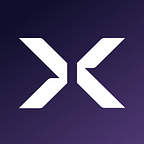What’s Next for Crypto Payment Solutions?
Despite the risk, crypto has committed users all across the globe. In a recent survey by GoBankingRates, 1037 Americans shared the main reasons they invested in cryptocurrency. Many people are turning to cryptocurrencies as a means to store their wealth, send money abroad, and transact business, especially in areas where the local currency is experiencing severe depreciation. The number of people using cryptocurrencies shot up in 2021, and the fact that a lot of different countries contributed to this line going up shows that cryptocurrencies are a truly global trend.
When compared to fiat, cryptocurrency transactions can be done at much lower costs. Blockchain technologies have made it possible to complete transactions quickly, no matter where the customer and the business are located. Users can buy and sell cryptocurrency whenever they want — even on weekends and holidays — because the blockchain doesn’t depend on a central authority.
As debit cards and electronic transfers slowly replace cash, we are moving toward a system where third-party entries in a digital ledger handle money transfers between governments, banks, corporations, and individuals. Especially when third-party payment gateways for fiat constantly raise the cost of running the financial system. Even the International Monetary Fund admits that cryptocurrencies will be adopted more quickly in nations where their risks are less than traditional banking.
The gap between crypto and fiat
Although cryptocurrencies are widely accessible, the lack of a reliable way to convert them into fiat remains a significant barrier to mainstream adoption. Up until this point, people have been unable to engage with digital currencies because they either lack the necessary means or have been forced to pay high costs when attempting to do so. As long as it’s extremely difficult to get into and out of crypto, there will be roadblocks to widespread adoption.
Luckily, crypto payment gateways have made it easy to accept cryptocurrencies as it is to accept fiat. Crypto payment gateways enable simple, fast, and easy transactions. Ecosystems like XLD Finance continue to simplify the crypto onboarding process with their products by taking the best of FinTech and building it on DeFi.
The ecosystem that patches the spaces between
XLD Finance’s goal is to make it easier for people and businesses to use cryptocurrencies in everyday life by providing convenient and quick financial services. One of their products includes OmniX, a web-based multi-tool solution for cryptocurrency disbursements. On the same note, XLD Finance is also working on a web-based crypto payment platform that allows users to do on-off-ramping, process direct crypto-to-fiat conversion, pay bills, and reload prepaid mobile credits — all in one platform.
XLD Finance is also working to provide APIs and SDKs so that businesses can utilize crypto payment gateways. Through this, businesses that want to get into the crypto space can easily set up payment gateways, and anyone who is interested in cryptocurrencies can easily use them.
Considering how technology is rapidly moving us toward a future in which financial services are more widely available globally, crypto-to-fiat solutions are more important than ever.
Fixing the friction between cryptocurrencies and fiat, while attracting new users to the Web3 ecosystem depends on the existence of companies like XLD Finance, which continue to innovate seamless DeFi experiences.
About XLD Finance
XLD Finance is a borderless decentralized ecosystem enabling financial inclusion in emerging economies through fast, simplified, and “bank-like” solutions. XLD Finance eliminates the complexities of Web2 financial models by providing Web3 solutions in the form of blockchain-based APIs and SDKs.
To learn more about the XLD Finance ecosystem and be alerted of future updates, visit our website, or follow us on Discord, Twitter, Medium, LinkedIn, and Telegram.
